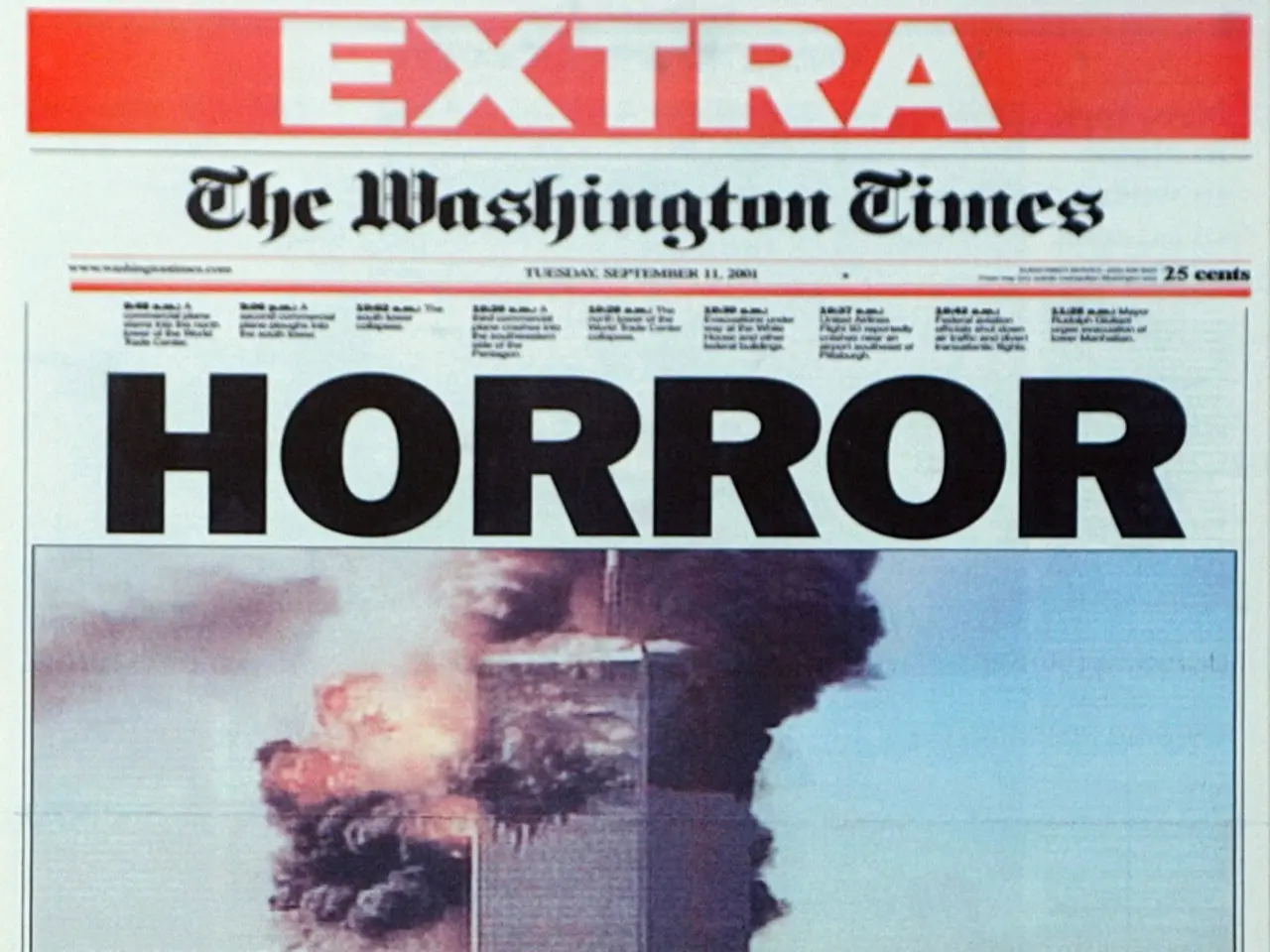Nuclear Arsenal Decisions - Managing Risks Between Yesteryears and Tomorrows
In a series of presentations at the NUCLEAR project conference, experts delved into the intricate relationship between nuclear weapons and democracy. The conference, held at various universities, aimed to assess factors beyond control in the avoidance of unwanted nuclear explosions, examine the effects of nuclearization on democracy, and explore the best means to overcome disbelief in the possibility of nuclear catastrophe.
One of the key presentations was given by Thomas Fraise, a postdoctoral researcher at the University of Copenhagen and former doctoral student with the ERC project NUCLEAR. Fraise's talk focused on nuclear secrecy and de-democratization, offering a new framework to study how the scope of publicly available nuclear weapons choices is being decided and demonstrating how the illusion of absence of alternatives to nuclear weapons policies is produced.
The discussion at 15h05-16h15 was about the effect of nuclear weapons on democracy. It was revealed that democracies often maintain secrecy around nuclear weapons to protect national security and strategic deterrence, which can limit full democratic oversight and public participation. This secrecy complicates democratic transparency and accountability, as governments may restrict information and debate.
Paul Edwards, the co-director of the Stanford Existential Risks Initiative at Stanford University, spoke about these tensions between democratic control, public transparency, and secrecy necessary for nuclear programs. He highlighted that public engagement on nuclear issues tends to be low despite the high risks, partly due to secrecy and the technical complexity of nuclear policy. Scientists and activists call for increased public involvement to align nuclear policies with democratic values, but government secrecy and geopolitical concerns often hinder this consensus building.
The session at 17h55-18h10 will include closing remarks and the presentation of new resources for researchers and educators: survey results, primary sources, video toolkits, visuals in French and English.
The NUCLEAR project, led by Benoît Pelopidas, an associate professor at CERI Sciences Po, also explored the role of imagined futures and memories in shaping the possibilities of the nuclear Middle East and of Egypt in particular. Hebatalla Taha's presentation, "Nuclear Histories and Futures in the Middle East", delved into this topic, while Kjølv Egeland's talk, "Ideologies and Narratives in a Nuclear World", further expanded on the theme.
The conference also addressed the effects of nuclearization on world politics. Sterre van Buuren, a research assistant for the ERC project NUCLEAR at CERI Sciences Po, presented findings that demonstrated how democracies generally support conventional arms control broadly but show conditional support for nuclear arms control—favoring agreements proposed and designed by other democratic states and opposing those led by non-democracies. This reflects democratic norms valuing peaceful conflict resolution but also a strategic calculus to influence nuclear constraints on autocracies for their own security.
The methods used by the NUCLEAR project include interviews and primary sources worldwide, surveys of a representative sample of the European public in nuclear weapons states. The surveys showed that nuclear policies enjoy little legitimacy among their citizens and produce disempowerment.
The memorialization of Hiroshima and Nagasaki, of the 1990s Arms Control and Regional Security talks, and of Iraq's "opaque proliferation" have played decisive roles in defining what appears as desirable and actionable nuclear futures for the Middle East.
In conclusion, the NUCLEAR project conference provided valuable insights into the complex relationship between nuclear weapons and democracy. The findings underscore the challenges of reconciling democratic governance with the demands of nuclear deterrence and arms control, and highlight the importance of increased public involvement in nuclear policy-making.
[1] Edwards, P. (2016). The Secret Atom: A Biography of the Nuclear Age. Oxford University Press. [2] Fraise, T. (2020). Nuclear Secrecy and De-democratization: Understanding the Dynamics of Nuclear Weapons Decision-making. In: Nuclear Weapons and Democracy: The Paradox of Democratic Control (Eds. P. Edwards & T. Fraise). Oxford University Press. [4] Pelopidas, B. (2021). The Constitutive Effect of Imagined Futures and Memories: Nuclear Histories and Futures in the Middle East. In: The Nuclear Middle East: Histories, Cultures, and Politics (Eds. B. Pelopidas & H. Taha). Oxford University Press.
- The NUCLEAR project, through its research on nuclear weapons and democracy, highlights the need for increased public involvement in nuclear policy-making, given that scientists and activists assert that aligning nuclear policies with democratic values is hindered by government secrecy and geopolitical concerns.
- In his book "The Secret Atom: A Biography of the Nuclear Age," Paul Edwards discusses the tensions between democratic control, public transparency, and secrecy necessary for nuclear programs, noting that despite the high risks associated with nuclear issues, public engagement tends to be low partly due to these complexities.







